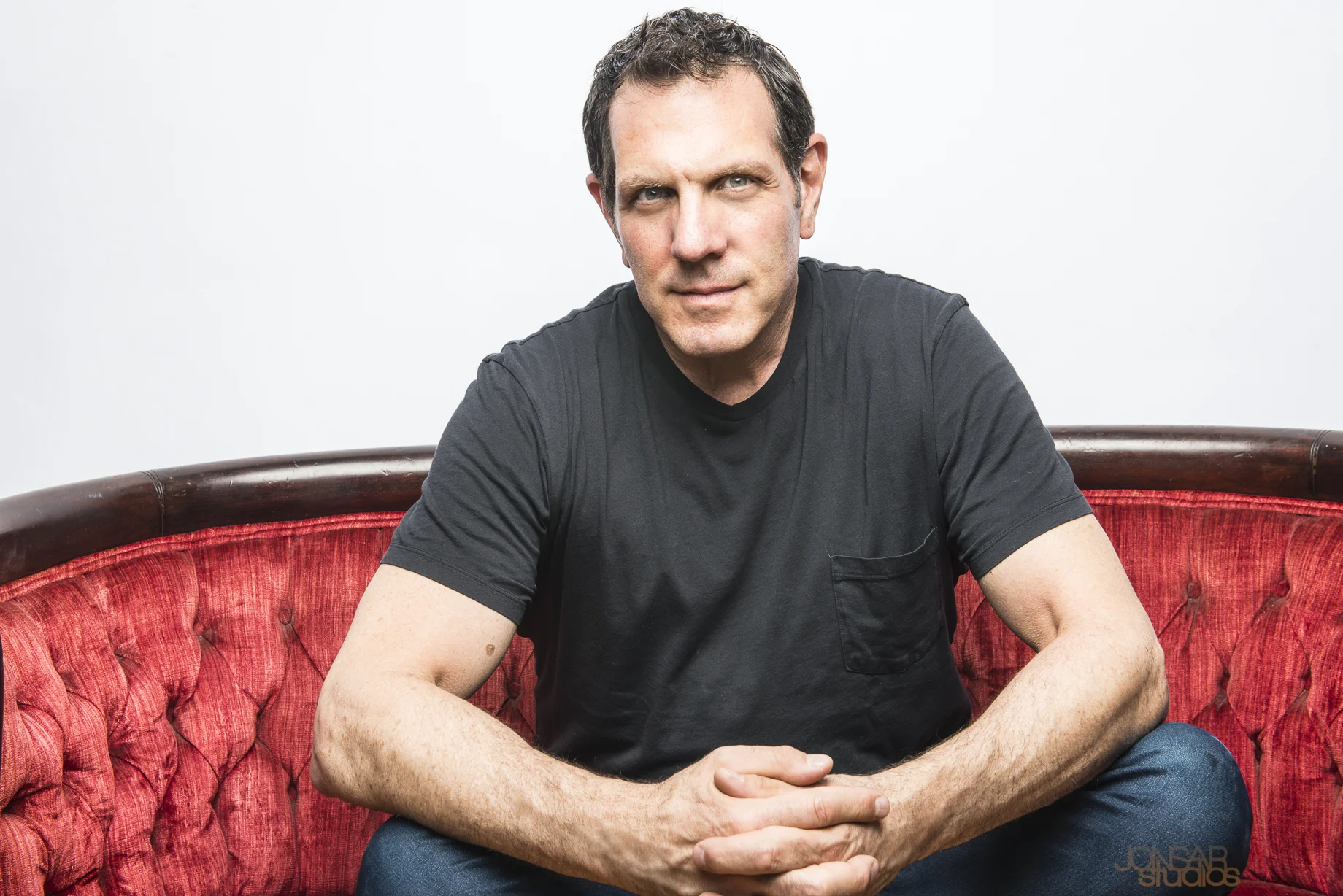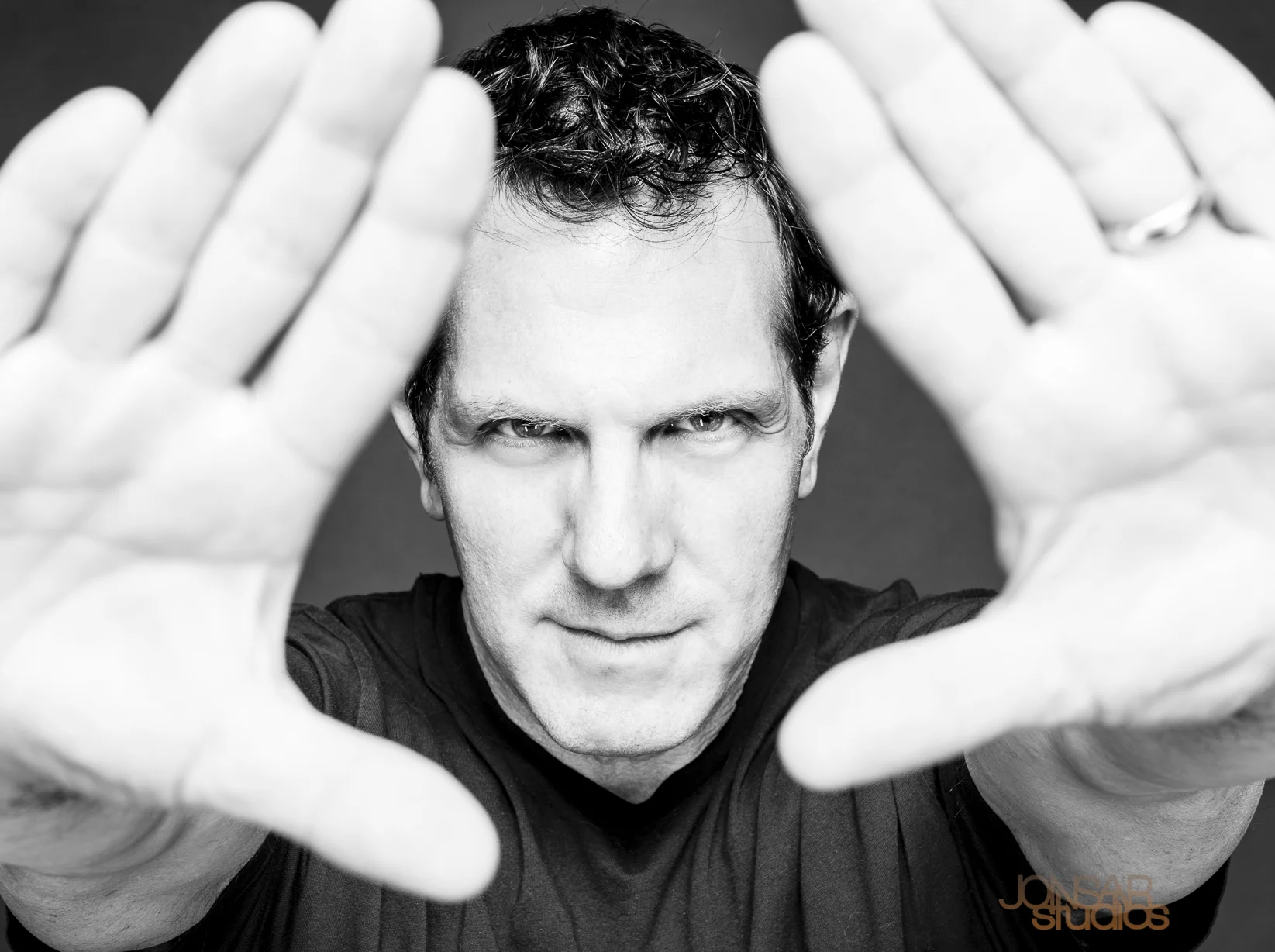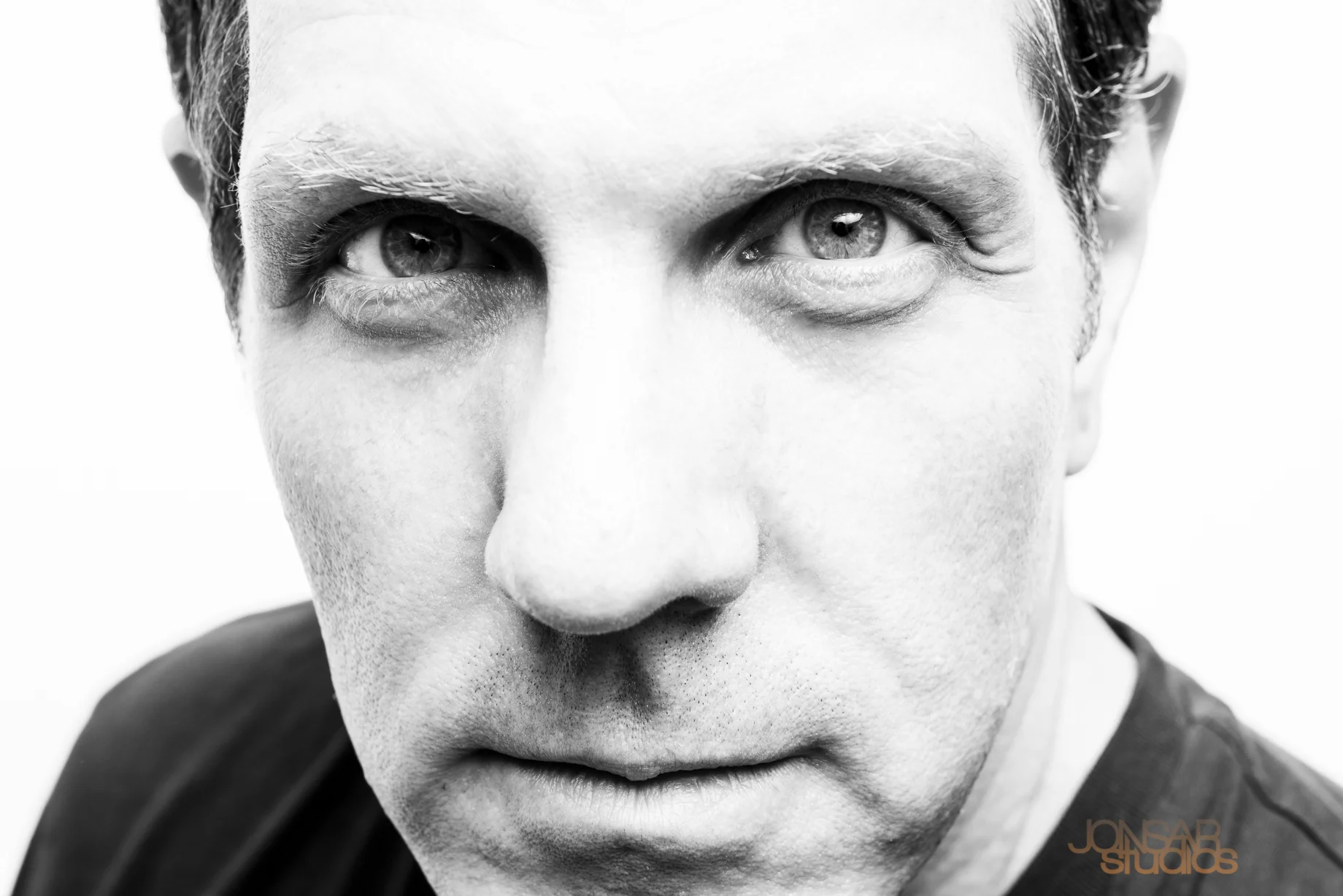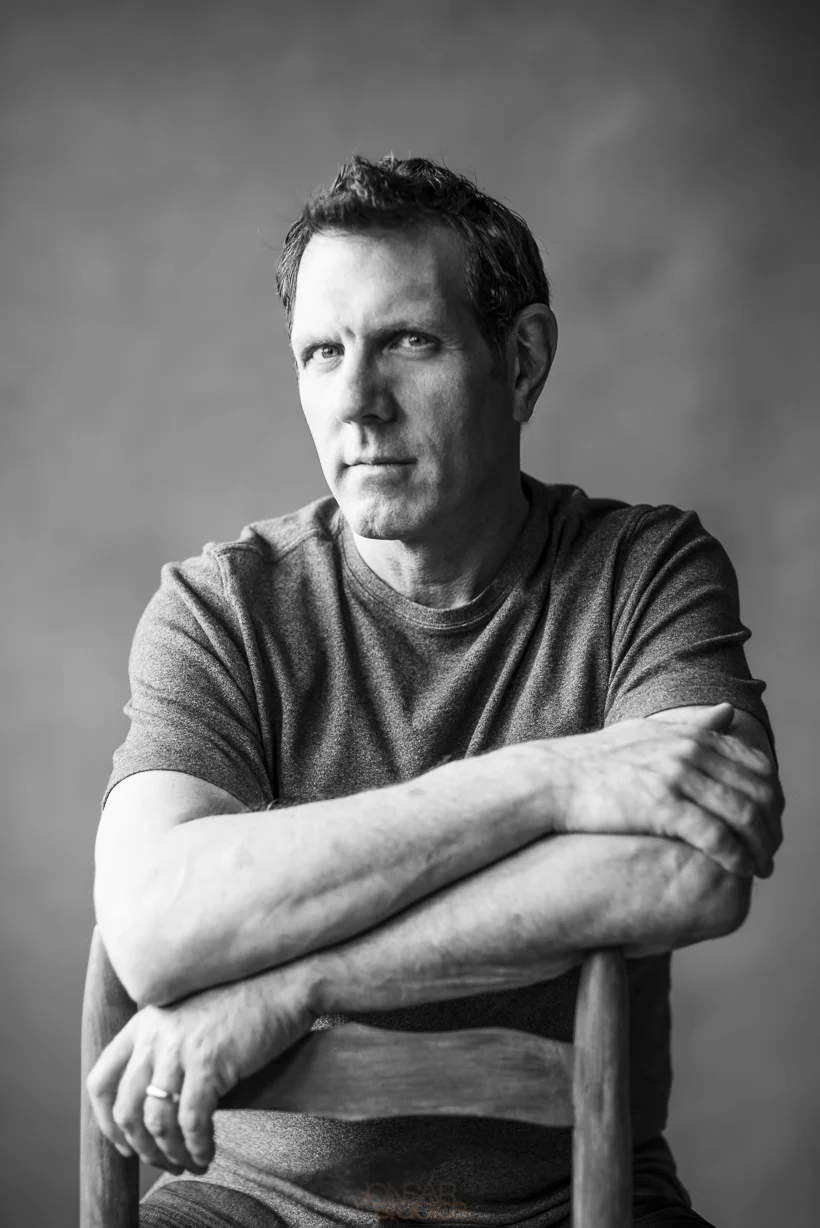Michael Blatter - Conversations with Artists
What is the art of what you do?
My mom was an artist, my dad was a fashion designer, but because I had a big mouth they always said: 'you'll be a businessman, you're a business guy.' Four or five years ago someone said: 'you know Blatter, you're an artist.' My response was, 'I'm not really an artist.' But they said, 'yes you are -- you create, and your medium is the live experience.' I had never looked at it that way. Sometime after that, I was invited to an event that was absolutely spectacular. It was a speakeasy thing. At the end, the proprietor came up to me and introduced himself and said, 'Hi, my name is Nathan, welcome to my speakeasy. I'm an experiential artist.' It was then that I realized, 'wait, that's what I do.'
So what is the art of it?
The art of it is I try to move people. My goal in life is to try to get deep down into people's soul and find those emotional touch points that changes people in one way or another. For many years I knew how to shock and disorient people - that's stuff I learned in the nightlife business early on and juxtaposed against all the happy emotions was a relatively easy thing to do. It wasn't until recently that I started to explore the entire spectrum of emotions. Now what I've been doing is cataloging over 700 emotions so far and when I design an experience I actually design the memory first. Our experiences are very different than our memories, and it's the memory that we're really trying to instill somebody. It's the memory that's going to move someone. It's the memory that's going to influence decision making. So if I can use emotion to influence memory, there’s something really special there. I like to take people on a journey. So all of my experiences start with an engagement that involves curiosity, build towards anticipation, and at some point in time delivers some sort of shock and discovery that leads to exuberance or euphoria. It's genuine scientific stuff that certain emotions will trigger serotonin, oxytocin, and dopamine in particular. If I can start influencing that neurochemistry to happen by designing experiences with strong emotions - we know we're making people feel certain things, and we know we're changing the chemical makeup in people's bodies. It's sort of like being a drug dealer in a sense. It's only very recently that I've been digging into the science of what's happening in our brains, the psychology of how we form and retain memories. So now it's got a lot of structure and depth to it. But before it was shooting from the hip. Always great, but now even better.
Why do people seem to need these types of experiences?
We live in this over-mediated society guided by screen-based culture, particularly young people. We've become reliant on the dopamine we get from a device which is artificial. So when we get it in a more natural way from human touch, from hugging, from being around other people, from communication - we put down the devices and it's even stronger and more powerful. As a culture and a society, we've taken experience for granted. I think we are moving towards participatory culture and there are all sorts of opportunities for fine artists and commercial artists. My team and I ask how can we improve the human experience so that everyone that comes into our realm and into our world walks away with an emotionally moving experience.
People are changed by what they experience at your events.
We have been told, for example with the Jack Daniels' thing in Chicago, people walk out and say, 'this was the best experience of my life.' We intentionally cross the spectrum from negative emotions to extreme positive emotions which releases all sorts of crazy endorphins and neurochemistry. People don't know exactly what happened but they feel like it's the best thing that ever happened in their life because it was such an unusual circumstance.
How do you design your events?
We actually have crafted a framework that involves identifying the behaviors that we want to elicit. So if we want you to feel courage, which is an emotion but is also a behavior, if we want you to evangelize and tell our story, if we want you to purchase, if we're doing a commercial experience, we look at what are those array of behaviors, and ask what emotions are most likely to influence those behaviors. We took those emotions and broke them down into core emotions. So within each primary emotion - of which there are about a dozen, there are about three to four primaries within those. But within those primary emotions we've broken those down into another half a dozen to a dozen target emotions, ones like wonderment and enchantment. When we look at the target emotion we really create a template, it's almost like a painting palette. We look at the palette and we say let's go create an experience using this particular palette of emotions. That's the magic that happens.
Are you working with psychologists?
We’re talking to more and more psychiatrists and psychologists. We've talked about how trauma victims are stuck in a big negative space and how doctors use medication to play with their neurochemistry to make them better. I've suggested that if I were to take a trauma victim and take them on a whirlwind tour of some wild experiences and crazy emotions over a short period of time, that we can readjust their neurochemistry. That's not proven yet, but I've had a lot of psychiatrists agree that there's something to this idea. So with PTSD in soldiers, imagine if there was some program where you're going to experience some crazy stuff that resets your emotional framework in your head.
We call it the emotional roller coaster. We take people across the emotional spectrum. When you go from euphoria to melancholy in a total juxtaposition of emotions, it makes the euphoria even more euphoric and the melancholy even worse. That's what's special. That's when the neurochemistry fires that much more.
So that's why you would build in the negative emotions.
We always build in the negatives. The negatives are just as important as the positives. We'll go talk to a client and most event clients, whether it's a private party a bar mitzvah or a big corporate client, they'll all say, 'I want a little surprise and delight. Surprise and delight my guests.' I say, 'fuck surprise and delight! That's only two of 700 emotions!’ You gotta go deep, deep into the depth of emotion to really move someone. We get surprise and delight all the time.
As an artist, what’s your canvas?
Peoples’ memories are the canvas. We're painting with memory, we're crafting memories. There are certain things we do where we know everyone will be taking something away, and it will be permanently etched in their brain. As humans, we store memories, and we know that creating really deep narratives, which is part of the art, layered in with intense emotions - those roller coaster emotions where we really have the ability to help craft the actual memory, but also make sure it's powerful and long-lasting. Cool shit, right?
You're shining some light into some areas that we hadn't thought about before.
You know who does this really well? Movie directors. The best movies, the ones we walk out of saying 'wow, best fucking movie ever' - that's the one when you went on the emotional roller coaster. It's the one where you cried and you laughed and you cried and you laughed. It's about the spectrum. It's the movie where you're like holy shit, up down, up down. This is much easier to do in a movie because it's all artificial. In the context of live events, it's interactive theater.
Never thought of events in that way.
I think I've picked up a lot of it from my nightlife career early on, particularly at Area. I remember always doing secret parties and surprise things that would happen. I think as a kid I wanted attention and it was my job to get attention by shocking people. So I would do crazy shit, and the crazier shit I did, the more attention I got. That translated right into my events which I started doing in 8th grade.
Do you think that's still what motivates you?
What I always said motivated me for many years was smiles on people's faces. When I worked in the nightclub business for 10 years, there was nothing that made me happier than standing in the corner watching people smiling and raging and hooking up and meeting other people. Now I ask why are they smiling? It's the emotions I'm giving them. It's the design of the whole experience. I was looking at the surface of it for many years and now it's the depth of what's happening in their heads.
You're changing lives.
In some cases we have changed people's lives. There are people that have met and gotten married and had children when they wouldn't have ever come in contact with each other if they hadn't come to one of my experiences.
Do your ideas come from the recesses of your mind?
I'm a keen observer of popular culture. I view that as my job. I go out a lot. I go to a lot of shows. I see a lot of things. And I store it all, for the purpose of pulling it up for events. I don't think there are any original ideas out there. Everything I've done is an extraction of one piece or a component of something else. It's how I've stitched it together to make it my own.
The need for these experiences as a culture, is it because we've lost something that we used to have?
I think it's not that we lost anything, we just picked up something different. People evolve, things evolve, cultures and society evolve. But you could say that this is a lost art. It's the lost art of experience. Nostalgia is one of the most common emotions that we like to feel. It's all based in the past, in things we like and it's something we pull upon in times of discontinuity. So if we're having a bad day, our brains tend to go to a happier time or place, and our neurochemistry changes with nostalgia. It's almost like protection mechanism we have built in our brain to make us feel good. So as the experience artist or experience designers, we have an ability to help people by offering them nostalgia and a host of other emotions. There are a lot of positive things that can be done with the art itself. I've been preaching to people who are event planners or experiential designers, telling them they are experience artists and we have to focus not just on the experiences for our corporate clients but the experience of humanity as a whole. There's a higher calling for this type of art.
If you could back to Michael at 10 years old, what advice would you give him?
Patience and focus. Don't try to change everything. Don't try to do a million things. Just stay focused on very few things. And don't expect anything to happen quickly. You've got to stay at it. Things come in time - but you've got to stay focused.
What are you really excited about?
I want people to not take experience for granted, and realize it's a thing! When you get up every day, ask what experience are you delivering, and to whom? Every day I deliver an experience to my employees, to my wife, to my children. I ask: 'what can I do this weekend?' Or 'what's the experience I'm planning for somebody' because that's my contribution to their lives. We all need to provide better experiences for each other, whatever it may be. Is there a nicer way to make tea for my wife -- different than the way I made it yesterday? It's simple stuff but it can have a big impact.
Michael Blatter is a marketing maverick and the driving force behind the non-conformist culture at Mirrorball. As a pioneer in experience design, Blatter has a penchant for creating concepts that move people out of their comfort zones and open them to new ideas and associations.
Blatter has built a family of strategists, designers, producers, and creators united by a clear mission: to design experiences and engagements that stimulate people’s emotions and create deep meaningful memories. Under his leadership, Mirrorball has retained prestigious clients such as Perrier, Pepsi, Mountain Dew, Harley-Davidson, L’Oreal, Bayer, Dos Equis and Jack Daniel’s.
After years of creating award winning experiences for events, Blatter and his team have expanded their services to shake up the worlds of retail, attractions and hospitality.
Early in his career Blatter identified the value of “influencer marketing” and “cultural relevance”. Utilizing these concepts he formed KBA Marketing, which paved the way for the entire experiential marketing category. KBA grew to 1,600 employees in 30 cities and served clients including Coca-Cola & Nike. The agency was acquired by Interpublic Group. In 2003, he launched Mirrorball.
Blatter's deep knowledge of popular culture along with his energy and urge to innovate, is what keeps Mirrorball buzzing 24/7. He is known in the industry as a provocateur. Blatter holds Mirrorball to a standard of excellence in creativity, originality, and execution. He believes that as a society we undervalue the importance of great experiences and powerful memories. He has made it his mission to integrate those experiences wherever possible and lives for taking clients, companies, and guests on emotional journeys never before imagined.
Check out Mirrorball for more information.











